What is Propylparaben?
 Dee Saale
Dee Saale
Propylparaben is one of a family of chemicals known as parabens that are compounds of parahydroxybenzoic acid. The others area methyl-, ethyl-, and butylparaben. Although these compounds occur naturally — in some plants, for example — they are manufactured synthetically, and used mainly as preservatives and antimicrobials in cosmetics, foods and pharmaceuticals. Propylparaben is the form most commonly used. The compound has very low toxicity, but there is concern that it could play a role in the development of breast cancer, among other things.
Properties and Uses
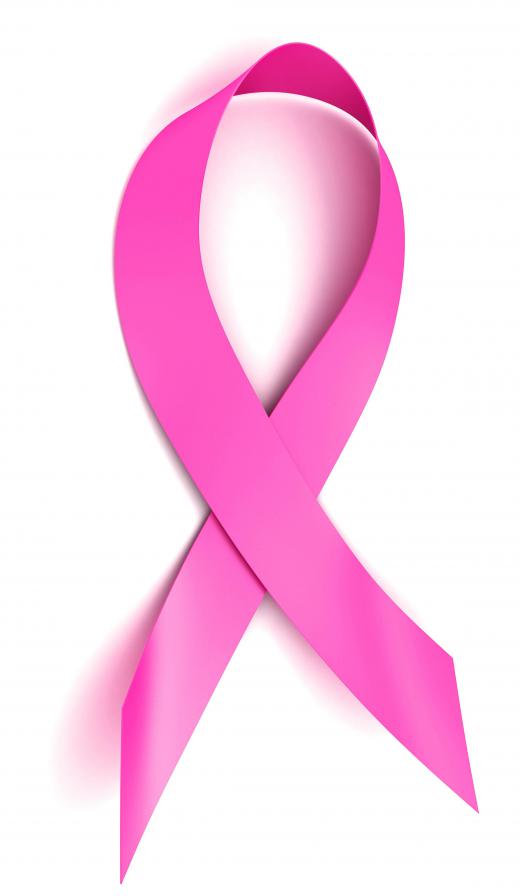
Cosmetics, pharmaceuticals, and foods can all spoil, due to the action of bacteria and fungi, if they do not contain a preservative or antimicrobial agent. Studies have shown propylparaben to be effective at low concentrations. It is particularly good at killing, or preventing the growth of, fungi, and works well across the range of acidities that includes most products intended for external or internal use. This, combined with its apparent lack of toxicity to humans and other mammals, and its low cost of manufacture, has led to its widespread use in a variety of products.
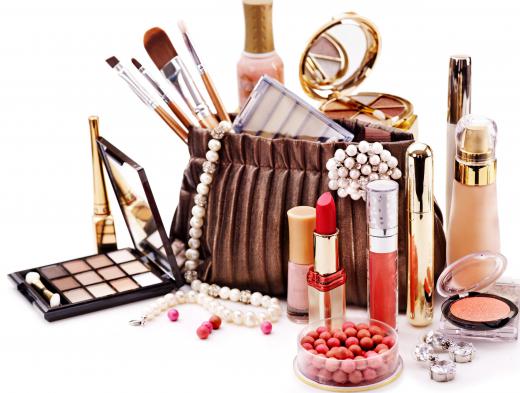
The compound is used extensively in the cosmetics industry, and is considered safe at concentrations of up to 25%. It has become the preservative of choice, especially for cosmetics that are water-based — such as moisturizers, shampoos, shower cleansers, conditioners, and sunscreens. Lipsticks, foundations, mascaras, and eye shadows may also contain it.
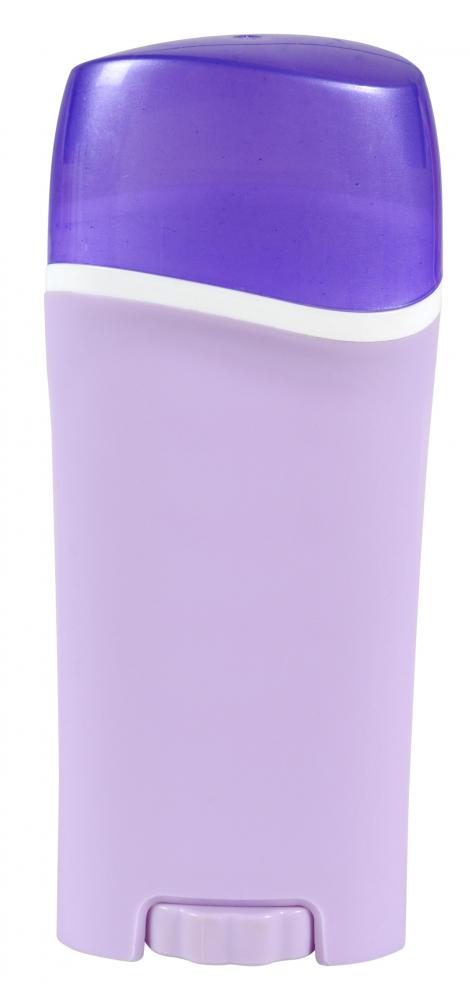
In the pharmaceutical industry, propylparaben is a common preservative for certain drugs. As a result, it is can be absorbed humans in several ways: injections, orally, or through suppositories. Since these uses involve the compound being taken internally, it is not normally found in concentrations exceeding 1%. The same applies to its use in foods.
Effects on Humans
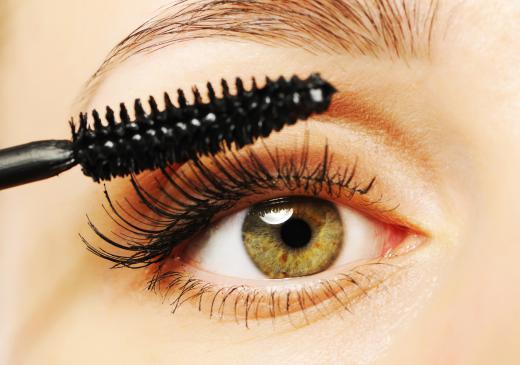
Testing for acute or chronic toxic effects has indicated that propylparaben has low toxicity for mammals. It can be mildly irritating to the skin, and there are reports of allergic reactions, but it is not thought to directly cause any other ill effects. It is easily absorbed into the system when taken orally, but is quickly broken down, and does not normally appear to accumulate in the body.
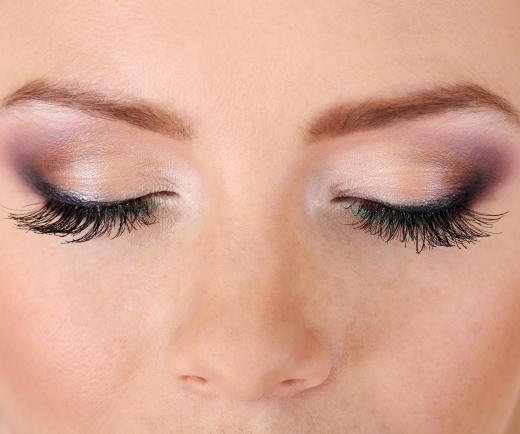
The main concern about this substance is that, like other parabens, it can mimic, to some extent, the action of the female hormone, estrogen. Although it is essential to female development, early exposure to the hormone has been associated with breast cancer, and estrogen-suppressing drugs are used in treatment of the disease. There appears to be no direct evidence linking parabens with cancer, but a number of studies have been conducted that have created fear in some consumers.
In one study, a group of British researchers tested tissue samples that were taken from women who had cancerous breast tumors. The researchers found traces of parabens in the lumps of all 20 women. This has caused some people to wonder whether these chemicals caused the cancer.
Other examples that cause concern include a September 2008 study of 20 girls between the ages of 14 and 19. The girls used multiple cosmetics products every day — from moisturizers to deodorants to make-up. In that study, propylparaben was found in every girl.
It is possible that parabens may also affect men. In one study on male rats fed these chemicals at various doses, it was found that testosterone production decreased in proportion to the dose. As of 2013, there is no clear evidence of any adverse effects from these substances on humans, and research into them is ongoing, but many people are taking a “better safe than sorry” approach and trying to avoid products containing these chemicals.
Since there is increased awareness of these compounds, and concern about their possible effects, some cosmetics manufacturers, particularly those that are organic in nature, are looking for alternative ways to prevent their products from spoiling or to inhibit microbial growth. Some may simply settle for shorter shelf lives, while other manufacturers are looking into other preservatives. Until more information is available, the safest course may be to limit exposure to parabens.
AS FEATURED ON:
AS FEATURED ON:















Discussion Comments
Methyl and ethyl are moderately toxic in extreme intravenous doses. Approximately 5% of body weight daily does incur some side effects such as rashes and unpredictable mental effects.
These are both combined with known toxins however, and no other types save Butylparaben show any effects. Butylparaben bonds to receptors and can trigger an increase in natural estrogen production, the amount is inconsequential.
In short, parabens in common beauty products show no signs of toxicity from 20 years of research. It's funny though, seeing as milk, eggs, and other processed animal products show a far stronger link.
@anon320320: Estrogen mimicry as mentioned in the article is equivalent to endocrine system disruption. They mean the same thing.
If you think parabens are not harmful, think twice. Parabens ages your skin faster. Ever seen people with bad acne? Well, it is most likely been caused by the products they used daily.
@anon87978: It may be dermatologist recommended, but not dermatologist tested. If it's dermatologist tested, it is a good product to use on your skin and it's a product. Most of the time products have parabens and chemicals.
There is some evidence that propyl paraben is an endocrine disrupter. The article neglects to mention that.
I have a question and I do not have an answer.
When put in a pharmaceutical formula for syrup including oil does propylparaben affect the flavor in its concentration or assay in the finished product?
The sun causes cancer, so are we supposed to stay indoors? Really people, live your lives.
Sound cliche I know, but what are you to tell people who live in fear of what some scientists say could or could not cause cancer?
You know what I'm going to do right now? I'm going to go eat a canned food that has parabens, then shower and us my soap that most likely has parabens and then use some lotion and guess what? It will probably contain parabens. Big freaking deal. Get over it!
I'm really sad to see the compliant reactions to this article. Why are we accepting such poor living standards given to us in society? "Practically everything causes cancer and we're all slowly dying anyway." Seriously? We should be ticked off that our mothers, sisters, wives, daughters, sons, and even you and me could be getting cancer due to a bunch of crap they put in our products. What's worse, no one even gets to know about it. Did you know the FDA does not assess the safety of personal care products?
Every here should look up "The Story of Cosmetics." It may change your life.
please. And I am sure they found water, DNA, fat, blood, sugar, estrogen in the breast tumors too. do those cause cancer as well?
I think you fail to mention that propylparaben prevents really bad organisms from growing in your various water-based things and making you sick or dead.
25 percent by weight seems extremely excessive, when a cosmetics review board limits to less than 0.4 percent single 0.8 percent total. Drugs are usually under 0.2 percent.
There are manufacturers that make paraben-free products. Ask for them where you shop, consider supporting retailers that carry a wide selection of healthy products.
Practically everything causes cancer and we're all slowly dying anyway. there's no need to raise big scares about paltry things such as parabens in our cosmetics. Maybe vent your craze over E Coli on our food or something.
Why do these harmful ingredients have to be in food, makeup, medicine and other products? Is
there anything safe out there for humans?
Why are practically healthy people developing cancer? Are you depending on the FDA to come up with something that is safe or approve safe-free ingredients that will not cause us humans an early death? What is safe these days? Who can we really rely on, really?
i just purchased three bottles of cetaphil. this is the #1 dermatologist recommended face cleanser. i read the ingredients and it contains all three parabens and sls. Is this still the top choice?
I've used Elicina for one month (snail cream).
I want to know if i can continue to use it because there is one agent who tells me to stop Elicina as it contains propilparabeno and it causes cancer.
so what can i do please?
Post your comments